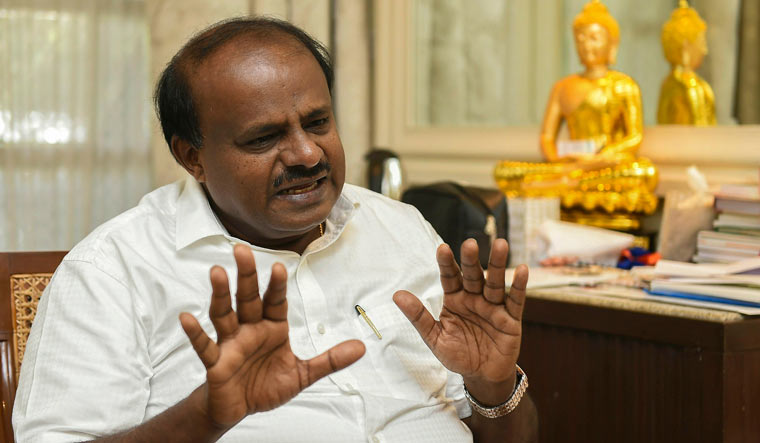Any member disqualified under the Tenth Schedule (anti-defection law) should be barred from contesting elections for the next ten years and no family member of the disqualified member should be allowed to contest from the vacated seat, said former chief minister and Janata Dal legislature party leader H.D. Kumaraswamy, in a letter to the Karnataka assembly speaker.
Kumaraswamy wrote in his suggestions (amendments) to the Tenth Schedule as sought by Karnataka assembly speaker Vishweshwara Hegde Kageri, who chaired the consultation meeting on the Tenth Schedule, held in Bengaluru on Thursday. The meeting was attended by the representatives of the various political parties and Constitutional experts.
Leader of the opposition in assembly Siddaramaiah seconded the fact and said the disqualified members should be barred from contesting elections for 10 years and also barred from holding any political position.
"Toppling an elected government through defection is like betraying the voters. If the disqualified member can get re-elected and become a minister, it is an assault on morality. A 10-year ban on the disqualified member entering the assembly can help fight the menace of political defections," argued Siddaramaiah, who felt that the speaker should continue to hold the powers to disqualify a member under the Tenth Schedule.
"Wresting power to disqualify from the speaker and handing it over to other individuals or entity does not guarantee justice. It is also extra constitutional," warned Siddaramaiah.
"A neutral person like a retired judge of a Constitutional court should hear the disqualification petition of the members of the House," suggested Kumaraswamy, citing the case of Keisham Meghachandra Singh vs Honourable Speaker, Manipur Legislative Assembly, where the Supreme Court held that the Parliament may seriously consider an amendment to substitute the Speaker of Lok Sabha and state assemblies as arbiter of disputes concerning the disqualification under the Tenth Schedule with a permanent Tribunal headed by a retired Supreme Court judge or a retired chief justice of a high court or an outside independent mechanism.
He drew attention to the fact that the court had noted that the Parliament should rethink if the disqualification petition ought to be entrusted to the speaker, who continues to belong to a political party.
In the KLA (Disqualification of members on ground of defection) Rules 1986, which came into effect on March 10, 1987, only a sitting member of the House has the power to file the petition (Rules 2(g). An amendment is needed to confer the same powers to any registered and recognised political party to file the disqualification petition against its member, Kumaraswamy said.
While the section 86(7) of the Representation of People's Act 1951, states that every election petition shall be tried as expeditiously as possible and endeavour shall be made to conclude the trial within six months from the date of the petition, the state's anti-defection rules, do not specify a time frame for the disposal of the petition filed under the Rule 6(2).
"An amendment to fix the time frame to a maximum of six months is neccessary to uphold the mandate and purport of the Constitution. The disqualification proceedings should video recorded and made available in the public domain to ensure transparency," urged Kumaraswamy.
"Political defections are a big malice and is prevalent among all political parties. If we don't find a solution to this now, it will jeopardise democracy. Karnataka has witnessed such a situation recently. Defections for the sake of political power, staging the resignation drama to help bring another party to power, should not be tolerated. Speaker is the judge and he should exercise his powers to uphold democracy," said KPCC chief D.K. Shivakumar, who added that the Congress party would officially give its suggestions by June 10, after consulting the leaders and members.



